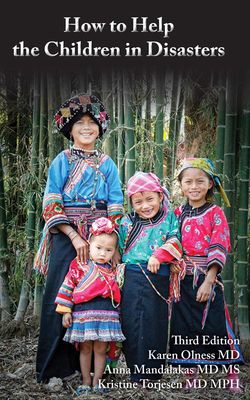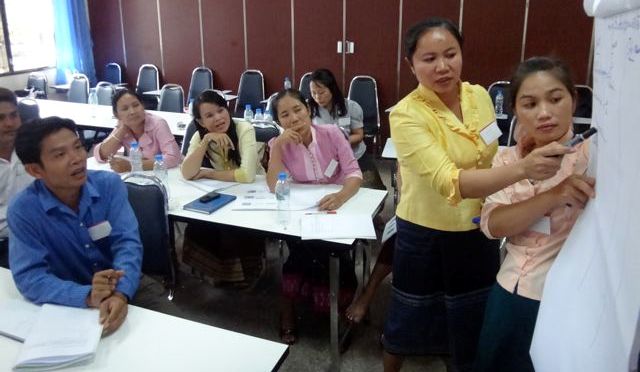Children in disasters
Millions of children around the world are caught in humanitarian disasters, due to nature, war, or terror. Often, their special needs are not fully recognized in relief efforts. Children represent 50 percent of displaced persons and 70 percent of fatalities during disasters. They are at risk for poor short-term and long-term health outcomes because of their limited judgment, inability to advocate for themselves, lack of physical strength and limited biologic reserves. Children are also likely to suffer from the stress and trauma generated by disasters, and the effects can be long lasting and irreversible.
Millions of children around the world are caught in humanitarian disasters, due to nature, war, or terror. Often, their special needs are not fully recognized in relief efforts. Children represent 50 percent of displaced persons and 70 percent of fatalities during disasters. They are at risk for poor short-term and long-term health outcomes because of their limited judgment, inability to advocate for themselves, lack of physical strength and limited biologic reserves. Children are also likely to suffer from the stress and trauma generated by disasters, and the effects can be long lasting and irreversible.
Responding to Humanitarian Emergencies - Focus on Children & Families
The Children-in-Disasters project has been an HF focus since 1996 with training workshops conducted in the US and in 19 other countries.
In each of the major natural disasters of the past few years - the 2010 Earthquake in Haiti, the 2004 Asian Tsunami, Hurricane Katrina - a unique band of volunteers have responded. They are graduates and faculty of a training program on the special needs of children in disasters, which HF Medical Director Karen Olness and colleagues at Case Western University first developed in 1995.
Health Frontiers has supported the implementation of training around the world, including a course on the long term psycho-social needs of children after the 2004 Tsunami in Thailand, a course addressing the aftermath of the 2008 cyclone in Burma, a training course for health teams heading to the Gulf after Hurricane Katrina, and courses on the immediate and long term psycho-social needs of children affected by the 2006 earthquake in Pakistan. In 2008, HF supported presentations of this workshop in Lebanon, Saudi Arabia, Nigeria (2018), Abu Dhabi (2019), Cleveland, OH (2019) and Jordan (2024).
In each of the major natural disasters of the past few years - the 2010 Earthquake in Haiti, the 2004 Asian Tsunami, Hurricane Katrina - a unique band of volunteers have responded. They are graduates and faculty of a training program on the special needs of children in disasters, which HF Medical Director Karen Olness and colleagues at Case Western University first developed in 1995.
Health Frontiers has supported the implementation of training around the world, including a course on the long term psycho-social needs of children after the 2004 Tsunami in Thailand, a course addressing the aftermath of the 2008 cyclone in Burma, a training course for health teams heading to the Gulf after Hurricane Katrina, and courses on the immediate and long term psycho-social needs of children affected by the 2006 earthquake in Pakistan. In 2008, HF supported presentations of this workshop in Lebanon, Saudi Arabia, Nigeria (2018), Abu Dhabi (2019), Cleveland, OH (2019) and Jordan (2024).
|
Lao PDR is a country frequently devastated by floods, typhoons, and other natural and man-made disasters. For example, many of the southern provinces were struggling for extended period pf time from the effects of Typhoon Ketsana of 2009, which left the rates of global acute malnutrition (GAM) in children above critical emergency threshold levels. In response to these needs, faculty from Khon Kaen University, Thailand, collaborated with Health Frontiers, Lao Faculty and the Lao University of Health Sciences to implement Children in Disasters course for the first time in August, 2012.
Moreover, HF volunteers helped to conduct a disaster training workshop in Nigeria in 2018, and provided comfort kits for Lao children displaced by severe floods in September. |
Upcoming Training and Resources

The fourth edition of How to Help the Children in Humanitarian Emergencies was published in 2015.
A hard copy of the book is available for purchase from Health Frontiers or on Amazon.
Below you can find an electronic version of the book.
HF was supporting workshops held in Panama in March and in Cleveland in June 2019
Additional information can be found on Case Western Reserve University website.
Upcoming workshops: February 25-28, 2024, Jordan
| childen_in_disasters_4th_edition.pdf |

